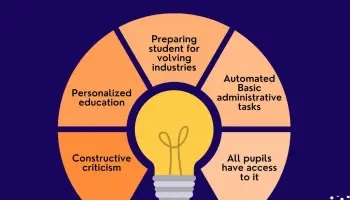Online instruction and learning are now standard practise for students and instructors worldwide due to the ongoing COVID-19 epidemic. As part of the Smart City Taiwan project, Taiwan’s Industrial Development Bureau of the Ministry of Economic Affairs (IDB) has collaborated with local businesses to use smart technology to ensure inclusive and equitable quality education for all. This is done in recognition of the role technology plays in the virtual classroom.
In order to solve structural issues connected to educational inequality and divergence, “Smart City Taiwan,” led by the IDB, was created to hasten the development of smart learning technologies. The four projects that make up Smart City Taiwan focus on three main areas: VoiceTube and LiveABC English education platforms; Webduino, an intelligent Internet of Things (IoT) platform that enables students interested in programming to start learning more conveniently and earlier; and NUWA Robotics for early childhood education.
“Technology for virtual learning is the most significant application and efficient answer to the rebirth of education given COVID-19’s substantial disruption to education internationally. Taiwanese businesses may challenge more possibilities, explore more innovative ideas, and actively construct comprehensive and sound systems for the future with government assistance “said the Smart City Taiwan Project Office official.
The Smart City Taiwan initiative has been handled by the Industrial Development Bureau of the Ministry of Economic Affairs since 2018. In order to successfully combine local, industrial, and consumer demands, Smart City Taiwan wants to make use of all smart technologies (such as IoT, Big Data, and AI). To promote regional and national innovation, the initiative expedites city-to-city cooperation and integration. A total of 224 projects have been launched by Smart City Taiwan so far, with a focus on six key areas: agriculture, education, healthcare, transportation, tourism, and government.

